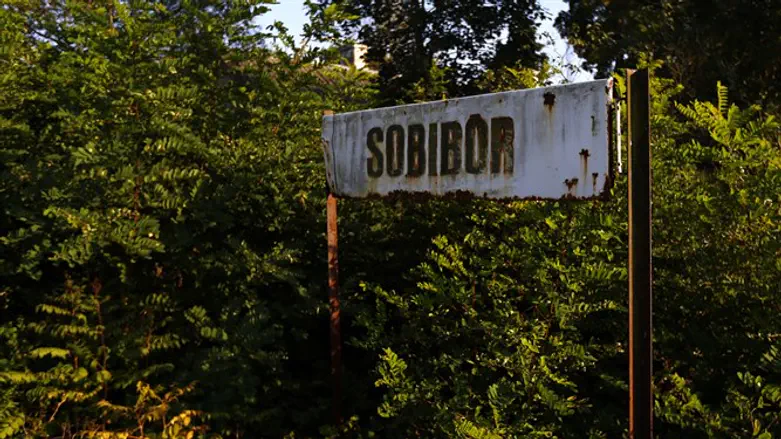
Days before Prime Minister Netanyahu is to meet with Russian President Vladimir Putin, the Israeli Ambassador to Russia was summoned by the Russian Foreign Ministry to clarify its stance on Russia’s participation in the renovation of a memorial museum on the site of the former Sobibor death camp in Nazi-occupied Poland.
The museum, which commemorates the atrocities committed at the Sobibor death camp during the Holocaust, when around a quarter of a million Jews were murdered there, is set to be renovated on the initiative of Poland, which owns the museum, Israel, Holland and Slovakia, whose representatives comprise the organizing committee. According to the Russian news site TASS, Russia had been invited to participate in the renovation project in 2013 and had accepted the invitation, also expressing readiness to make a significant financial contribution, but further meetings on the matter saw Poland veto Russian participation. In July, news came that a decision had been made to proceed with the project without Russia’s involvement.
A Russian Foreign Ministry spokesman told TASS that Israeli Ambassador to Russia Gary Koren had confirmed that "the Israeli Foreign Ministry supports Russia’s participation in the international management committee for the reconstruction of the Sobibor death camp museum."
The news came after Russian Foreign Ministry Spokeswoman Maria Zakharova had said on Thursday that the ambassadors of Israel and a number of European countries had been summoned to the ministry "for a serious conversation" in light of the international committee’s decision not to include Russia in the Sobibor museum project.
The Spokeswoman called the Polish veto on Russia’s participation “an outrageous fact of historical amnesia,” asserting that Russia had “many times confirmed our willingness to make a contribution, including a financial one, to the memorial construction to eternalize the memory of the prisoners of that Hitlerite death factory that ceased to exists due to the heroic deed of a Red Army soldier,” referring to the Russian Jewish officer Alexander Pechersky, who led the prisoner uprising which led to the Nazis destroying the death camp.